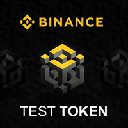-
 Bitcoin
Bitcoin $92,342.0445
-2.04% -
 Ethereum
Ethereum $1,742.5109
-2.97% -
 Tether USDt
Tether USDt $1.0002
0.00% -
 XRP
XRP $2.1414
-6.26% -
 BNB
BNB $596.8356
-2.82% -
 Solana
Solana $146.9564
-3.93% -
 USDC
USDC $1.0000
0.00% -
 Dogecoin
Dogecoin $0.1722
-6.04% -
 Cardano
Cardano $0.6791
-4.10% -
 TRON
TRON $0.2435
-1.24% -
 Sui
Sui $3.0108
2.39% -
 Chainlink
Chainlink $14.3657
-3.74% -
 Avalanche
Avalanche $21.9042
-4.93% -
 UNUS SED LEO
UNUS SED LEO $9.2493
2.04% -
 Stellar
Stellar $0.2616
-4.31% -
 Toncoin
Toncoin $3.1022
-1.33% -
 Shiba Inu
Shiba Inu $0.0...01303
-5.35% -
 Hedera
Hedera $0.1773
-5.65% -
 Bitcoin Cash
Bitcoin Cash $358.9223
-0.69% -
 Polkadot
Polkadot $3.9616
-5.17% -
 Litecoin
Litecoin $81.6981
-3.86% -
 Hyperliquid
Hyperliquid $17.9376
-6.07% -
 Dai
Dai $1.0001
0.01% -
 Bitget Token
Bitget Token $4.4376
-3.97% -
 Ethena USDe
Ethena USDe $0.9994
0.01% -
 Pi
Pi $0.6450
-4.32% -
 Monero
Monero $224.4314
-0.90% -
 Uniswap
Uniswap $5.7062
-5.01% -
 Pepe
Pepe $0.0...08441
-8.70% -
 Aptos
Aptos $5.2216
-2.90%
What is the use of KuCoin's leverage adjustment
KuCoin's leverage adjustment feature allows traders to modify their initial leverage amount, adapt to market conditions, and tailor their risk exposure for each trading position.
Nov 09, 2024 at 11:03 pm

What is the Use of KuCoin's Leverage Adjustment?
KuCoin, a leading global cryptocurrency exchange, offers a versatile trading platform with a wide range of trading instruments, including leverage trading. Leverage allows traders to amplify the potential returns of their trades by borrowing funds from the exchange. KuCoin's leverage adjustment feature provides traders with greater control over their risk exposure and trading strategies.
Understanding Leverage Adjustment
Leverage adjustment is the process of modifying the initial leverage amount assigned to a trading position. Traders can increase or decrease the leverage based on their risk tolerance, trading strategy, and market conditions. Here's how leverage adjustment works:
- Initial Leverage: When opening a leveraged position, traders need to select the desired leverage level, which determines how much capital they can borrow from the exchange. Higher leverage implies greater potential returns but also higher risk.
- Leverage Adjustment: After opening a position, traders can adjust the leverage amount within a certain range. This allows them to adapt to changing market conditions or alter their risk exposure.
- Leverage Limits: KuCoin imposes a minimum and maximum leverage limit on each trading pair. Traders can only adjust the leverage within this predefined range.
Benefits of Leverage Adjustment
KuCoin's leverage adjustment feature offers several benefits to traders:
- Risk Management: Leverage adjustment allows traders to manage their risk exposure effectively. They can reduce the leverage in volatile market conditions to mitigate losses or increase the leverage during favorable conditions to maximize potential returns.
- Diversification: Leverage adjustment helps traders diversify their portfolios across multiple trading pairs or cryptocurrencies. It enables them to adjust the leverage for each position individually, customizing their risk exposure for different assets.
- Capital Efficiency: Leverage adjustment helps traders maximize their capital efficiency. Instead of locking up all their capital in a single position, they can leverage a small amount to control a larger notional value. This allows them to allocate their capital more efficiently across multiple trades.
- Adaptability: Leverage adjustment enables traders to adapt to changing market conditions swiftly. They can increase the leverage during bullish trends to amplify profits or decrease the leverage during bearish trends to minimize losses.
Steps to Adjust Leverage on KuCoin
Adjusting leverage on KuCoin is a straightforward process:
- Select the Trading Pair: Log in to your KuCoin account and choose the desired trading pair from the trading interface.
- Enable Leverage: Click on the "Trade" button and enable the "Leverage" option in the "Order Type" section.
- Choose Leverage: Enter the desired leverage amount within the specified range for the chosen trading pair.
- Confirm Adjustment: Click on the "Adjust" button to confirm the leverage adjustment.
Conclusion
KuCoin's leverage adjustment feature empowers traders with greater control over their risk exposure and trading strategies. It enables traders to manage risk effectively, diversify their portfolios, optimize capital efficiency, and adapt to changing market conditions. By understanding the use and benefits of leverage adjustment, traders can enhance their trading performance and achieve their financial goals.
Disclaimer:info@kdj.com
The information provided is not trading advice. kdj.com does not assume any responsibility for any investments made based on the information provided in this article. Cryptocurrencies are highly volatile and it is highly recommended that you invest with caution after thorough research!
If you believe that the content used on this website infringes your copyright, please contact us immediately (info@kdj.com) and we will delete it promptly.
- Russia Attacks Bitcoin Mining Operations Again: More Restrictions Coming
- 2025-04-24 17:30:12
- Johor police cripple bitcoin-mining syndicate, causing TNB losses exceeding RM1.28 million
- 2025-04-24 17:30:12
- Solana (SOL) Price Surged by 5% and Hit $150.22
- 2025-04-24 17:25:13
- ING is teaming up with crypto firms to launch a euro-backed stablecoin.
- 2025-04-24 17:25:13
- Bitcoin vs Ethereum in 2025: Two Cryptos, Two Different Jobs
- 2025-04-24 17:20:12
- Pi Network Surprises the Market with a 5% Price Surge as It Launches Migration to Mainnet
- 2025-04-24 17:20:12
Related knowledge

How does Tail Protection reduce the loss of liquidation?
Apr 11,2025 at 01:50am
Introduction to Tail Protection in CryptocurrencyTail Protection is a mechanism designed to mitigate the risks associated with liquidation in cryptocurrency trading. Liquidation occurs when a trader's position is forcibly closed by the exchange due to insufficient margin to cover potential losses. This often happens in leveraged trading, where traders b...
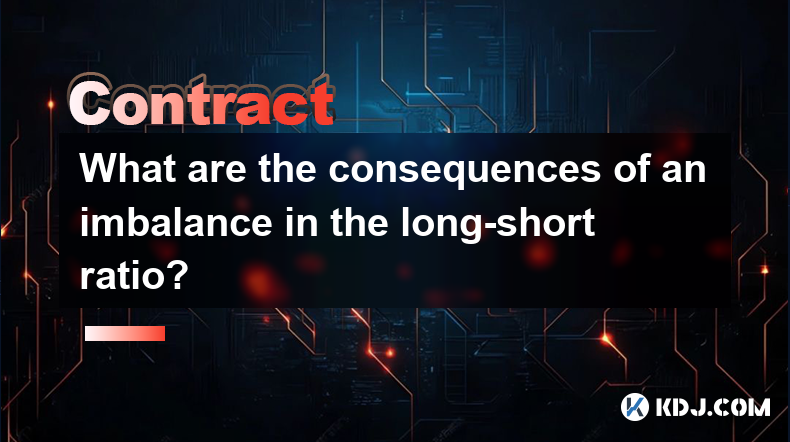
What are the consequences of an imbalance in the long-short ratio?
Apr 13,2025 at 02:50pm
The long-short ratio is a critical metric in the cryptocurrency trading world, reflecting the balance between bullish and bearish sentiments among traders. An imbalance in this ratio can have significant consequences on the market dynamics, affecting everything from price volatility to trading strategies. Understanding these consequences is essential fo...
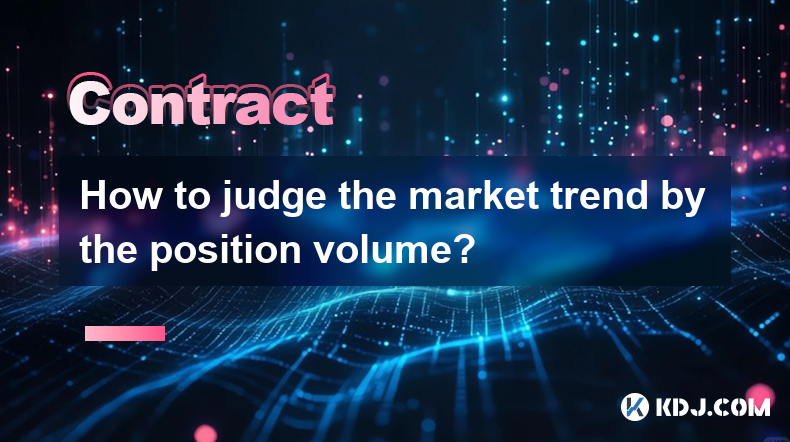
How to judge the market trend by the position volume?
Apr 11,2025 at 02:29pm
Understanding how to judge the market trend by position volume is crucial for any cryptocurrency trader. Position volume, which refers to the total number of open positions in a particular cryptocurrency, can provide valuable insights into market sentiment and potential price movements. By analyzing this data, traders can make more informed decisions ab...

Why does a perpetual contract have no expiration date?
Apr 09,2025 at 08:43pm
Perpetual contracts, also known as perpetual futures or perpetual swaps, are a type of derivative product that has gained significant popularity in the cryptocurrency market. Unlike traditional futures contracts, which have a fixed expiration date, perpetual contracts do not expire. This unique feature raises the question: why does a perpetual contract ...
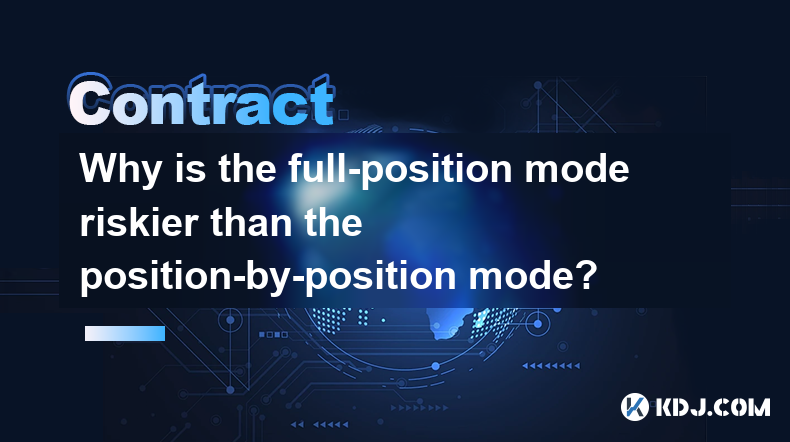
Why is the full-position mode riskier than the position-by-position mode?
Apr 13,2025 at 03:42pm
Why is the Full-Position Mode Riskier Than the Position-by-Position Mode? In the world of cryptocurrency trading, the choice between full-position mode and position-by-position mode can significantly impact the risk profile of a trader's portfolio. Understanding the differences between these two modes is crucial for making informed trading decisions. Th...
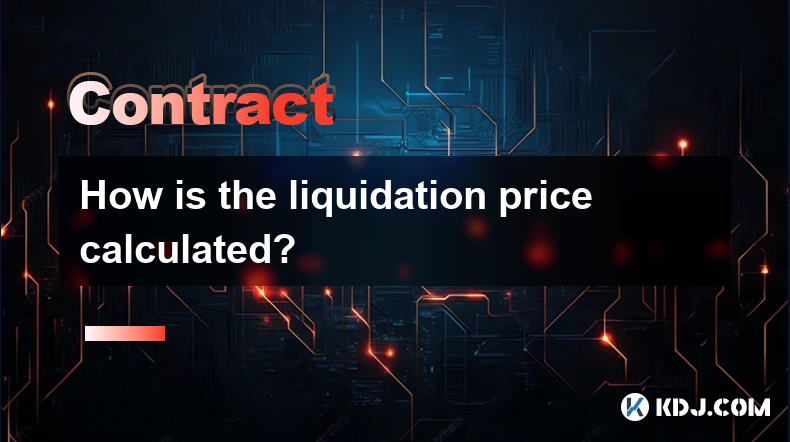
How is the liquidation price calculated?
Apr 12,2025 at 01:35am
Introduction to Liquidation PriceLiquidation price is a critical concept in the world of cryptocurrency trading, particularly when dealing with leveraged positions. Understanding how this price is calculated is essential for traders to manage their risk effectively. The liquidation price is the point at which a trader's position is forcibly closed by th...

How does Tail Protection reduce the loss of liquidation?
Apr 11,2025 at 01:50am
Introduction to Tail Protection in CryptocurrencyTail Protection is a mechanism designed to mitigate the risks associated with liquidation in cryptocurrency trading. Liquidation occurs when a trader's position is forcibly closed by the exchange due to insufficient margin to cover potential losses. This often happens in leveraged trading, where traders b...

What are the consequences of an imbalance in the long-short ratio?
Apr 13,2025 at 02:50pm
The long-short ratio is a critical metric in the cryptocurrency trading world, reflecting the balance between bullish and bearish sentiments among traders. An imbalance in this ratio can have significant consequences on the market dynamics, affecting everything from price volatility to trading strategies. Understanding these consequences is essential fo...

How to judge the market trend by the position volume?
Apr 11,2025 at 02:29pm
Understanding how to judge the market trend by position volume is crucial for any cryptocurrency trader. Position volume, which refers to the total number of open positions in a particular cryptocurrency, can provide valuable insights into market sentiment and potential price movements. By analyzing this data, traders can make more informed decisions ab...

Why does a perpetual contract have no expiration date?
Apr 09,2025 at 08:43pm
Perpetual contracts, also known as perpetual futures or perpetual swaps, are a type of derivative product that has gained significant popularity in the cryptocurrency market. Unlike traditional futures contracts, which have a fixed expiration date, perpetual contracts do not expire. This unique feature raises the question: why does a perpetual contract ...

Why is the full-position mode riskier than the position-by-position mode?
Apr 13,2025 at 03:42pm
Why is the Full-Position Mode Riskier Than the Position-by-Position Mode? In the world of cryptocurrency trading, the choice between full-position mode and position-by-position mode can significantly impact the risk profile of a trader's portfolio. Understanding the differences between these two modes is crucial for making informed trading decisions. Th...

How is the liquidation price calculated?
Apr 12,2025 at 01:35am
Introduction to Liquidation PriceLiquidation price is a critical concept in the world of cryptocurrency trading, particularly when dealing with leveraged positions. Understanding how this price is calculated is essential for traders to manage their risk effectively. The liquidation price is the point at which a trader's position is forcibly closed by th...
See all articles



















































































